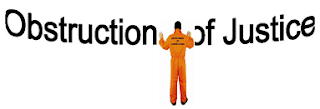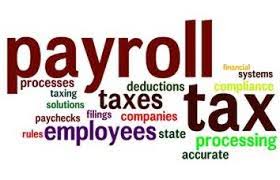Foreign Bank Account Report 90-22.1 (FBAR).
Criminal Penalties:
FAQ #6: What are some of the criminal charges I might face if I don't come in under OVDP and the IRS examines me?
Possible criminal charges related to tax returns include tax evasion (26 U.S.C. § 7201), filing a false return (26 U.S.C. § 7206(1)) and failure to file an income tax return (26 U.S.C. § 7203). Willfully failing to file an FBAR and willfully filing a false FBAR are both violations that are subject to criminal penalties under 31 U.S.C. § 5322.
· A person convicted of tax evasion is subject to a prison term of up to five years and a fine of up to $250,000.
· Filing a false return subjects a person to a prison term of up to three years and a fine of up to $250,000.
· A person who fails to file a tax return is subject to a prison term of up to one year and a fine of up to $100,000.
· Failing to file an FBAR subjects a person to a prison term of up to ten years and criminal penalties of up to $500,000.
Civil Penalties
FAQ #5: What are some of the civil penalties that might apply if I don't come in under the OVPD and the IRS examines me? How do they work?
Depending on a taxpayer’s particular facts and circumstances, the following penalties could apply:
· A penalty for failing to file the Form TD F 90-22.1 (Report of Foreign Bank and Financial Accounts, commonly known as an “FBAR”). United States citizens, residents and certain other persons must annually report their direct or indirect financial interest in, or signature authority (or other authority that is comparable to signature authority) over, a financial account that is maintained with a financial institution located in a foreign country if, for any calendar year, the aggregate value of all foreign accounts exceeded $10,000 at any time during the year. Generally, the civil penalty for willfully failing to file an FBAR can be as high as the greater of $100,000 or 50 percent of the total balance of the foreign account per violation. See 31 U.S.C. § 5321(a)(5). Non-willful violations that the IRS determines were not due to reasonable cause are subject to a $10,000 penalty per violation.
· Beginning with the 2011 tax year, a penalty for failing to file form 8938 reporting the taxpayer’s interest in certain foreign financial assets, including financial accounts, certain foreign securities and interests in foreign entities, as required by I.R.C. §6038D. The penalty for failing to file each one of these information returns is $10,000, with an additional $10,000 added for each month the failure continues beginning 90 days after the taxpayer is notified of the delinquency, up to a maximum of $50,000 per return.
· A penalty for failing to file Form 3520, Annual Return to Report Transactions With Foreign Trusts and Receipt of Certain Foreign Gifts. Taxpayers must also report various transactions involving foreign trusts, including creation of a foreign trust by a United States person, transfers of property from a United States person to a foreign trust and receipt of distributions from foreign trusts under IRC § 6048.This return also reports the receipt of gifts from foreign entities under section 6039F.The penalty for failing to file each one of these information returns, or for filing an incomplete return, is the greater of $10,000 or 35 percent of the gross reportable amount, except for returns reporting gifts, where the penalty is five percent of the gift per month, up to a maximum penalty of 25 percent of the gift.
· A penalty for failing to file Form 3520-A, Information Return of Foreign Trust With a U.S. Owner. Taxpayers must also report ownership interests in foreign trusts, by United States persons with various interests in and powers over those trusts under IRC § 6048(b).The penalty for failing to file each one of these information returns or for filing an incomplete return, is the greater of $10,000 or 5 percent of the gross value of trust assets determined to be owned by the United States person.
· A penalty for failing to file Form 5471, Information Return of U.S. Persons with Respect to Certain Foreign Corporations. Certain United States persons who are officers, directors or shareholders in certain foreign corporations (including International Business Corporations) are required to report information under IRC §§ 6035, 6038 and 6046.The penalty for failing to file each one of these information returns is $10,000, with an additional $10,000 added for each month the failure continues beginning 90 days after the taxpayer is notified of the delinquency, up to a maximum of $50,000 per return.
· A penalty for failing to file Form 5472, Information Return of a 25% Foreign-Owned U.S. Corporation or a Foreign Corporation Engaged in a U.S. Trade or Business. Taxpayers may be required to report transactions between a 25 percent foreign-owned domestic corporation or a foreign corporation engaged in a trade or business in the United States and a related party as required by IRC §§ 6038A and 6038C. The penalty for failing to file each one of these information returns, or to keep certain records regarding reportable transactions, is $10,000, with an additional $10,000 added for each month the failure continues beginning 90 days after the taxpayer is notified of the delinquency.
· A penalty for failing to file Form 926, Return by a U.S. Transferor of Property to a Foreign Corporation. Taxpayers are required to report transfers of property to foreign corporations and other information under IRC § 6038B. The penalty for failing to file each one of these information returns is ten percent of the value of the property transferred, up to a maximum of $100,000 per return, with no limit if the failure to report the transfer was intentional.
· A penalty for failing to file Form 8865, Return of U.S. Persons With Respect to Certain Foreign Partnerships. United States persons with certain interests in foreign partnerships use this form to report interests in and transactions of the foreign partnerships, transfers of property to the foreign partnerships, and acquisitions, dispositions and changes in foreign partnership interests under IRC §§ 6038, 6038B, and 6046A. Penalties include $10,000 for failure to file each return, with an additional $10,000 added for each month the failure continues beginning 90 days after the taxpayer is notified of the delinquency, up to a maximum of $50,000 per return, and ten percent of the value of any transferred property that is not reported, subject to a $100,000 limit.
· Fraud penalties imposed under IRC §§ 6651(f) or 6663. Where an underpayment of tax, or a failure to file a tax return, is due to fraud, the taxpayer is liable for penalties that, although calculated differently, essentially amount to 75 percent of the unpaid tax.
· A penalty for failing to file a tax return imposed under IRC § 6651(a)(1). Generally, taxpayers are required to file income tax returns. If a taxpayer fails to do so, a penalty of 5 percent of the balance due, plus an additional 5 percent for each month or fraction thereof during which the failure continues may be imposed. The penalty shall not exceed 25 percent.
· A penalty for failing to pay the amount of tax shown on the return under IRC § 6651(a)(2). If a taxpayer fails to pay the amount of tax shown on the return, he or she may be liable for a penalty of .5 percent of the amount of tax shown on the return, plus an additional .5 percent for each additional month or fraction thereof that the amount remains unpaid, not exceeding 25 percent.
· An accuracy-related penalty on underpayments imposed under IRC § 6662. Depending upon which component of the accuracy-related penalty is applicable, a taxpayer may be liable for a 20 percent or 40 percent penalty.
FAQ #8: Example of Application of Civil Penalties
It is assumed for purposes of the example that the $1,000,000 was in the account before 2003 and was not unreported income in 2003.

|
Year
|
Amount on Deposit
|
Interest Income
|
Account Balance
|
|
2003
|
$1,000,000
|
$50,000
|
$1,050,000
|
|
2004
|
|
$50,000
|
$1,100,000
|
|
2005
|
|
$50,000
|
$1,150,000
|
|
2006
|
|
$50,000
|
$1,200,000
|
|
2007
|
|
$50,000
|
$1,250,000
|
|
2008
|
|
$50,000
|
$1,300,000
|
|
2009
|
|
$50,000
|
$1,350,000
|
|
2010
|
|
$50,000
|
$1,400,000
|
(NOTE: This example does not provide for compounded interest, and assumes the taxpayer is in the 35-percent tax bracket, does not have an investment in a Passive Foreign Investment Company (PFIC), files a return but does not include the foreign account or the interest income on the return, and the maximum applicable penalties are imposed.)
If the taxpayers didn’t come forward, when the IRS discovered their offshore activities, they would face up to $4,543,000 in tax, accuracy-related penalty, and FBAR penalty (325% of the Highest Balance in the Account!).
The Taxpayers Would Also be Liable for Interest and
Possibly Additional Penalties & an
Examination Could Lead to
Criminal Prosecution.
What about Reasonable Basis For Failure to Include Income & File an FBAR Report?
If the holder of an offshore account can successfully convince the IRS that the failure to file the FBAR was not willful then the penalties would be limited to $10,000 per violation. However, the IRS takes the position that a separate violation occurs for each bank account that is not listed on the FBAR. So for example if an offshore bank account holder has 6 separate accounts the penalty would be $60,000. As with the willful FBAR penalty this penalty, this penalty can be imposed for multiple years so that the total of these penalties can easily grow into the hundreds of thousands of dollars.

It is only if the holder of an offshore account can convince the IRS that the failure to file an FBAR is due to "reasonable cause" that the FBAR penalty will be waived.
Generally speaking the IRS has been intransigent on this topic, and it is the rare case where the IRS will agree that there is reasonable cause for failure to file an FBAR. In appropriate cases the only way to relief may be through litigation.
Undeclared Income from an Offshore Bank Account?
Want to Know if the OVDP Program is Right for You?
Contact the Tax Lawyers at
Marini& Associates, P.A.
for a FREE Tax Consultation
Toll Free at 888-8TaxAid (888) 882-9243


















